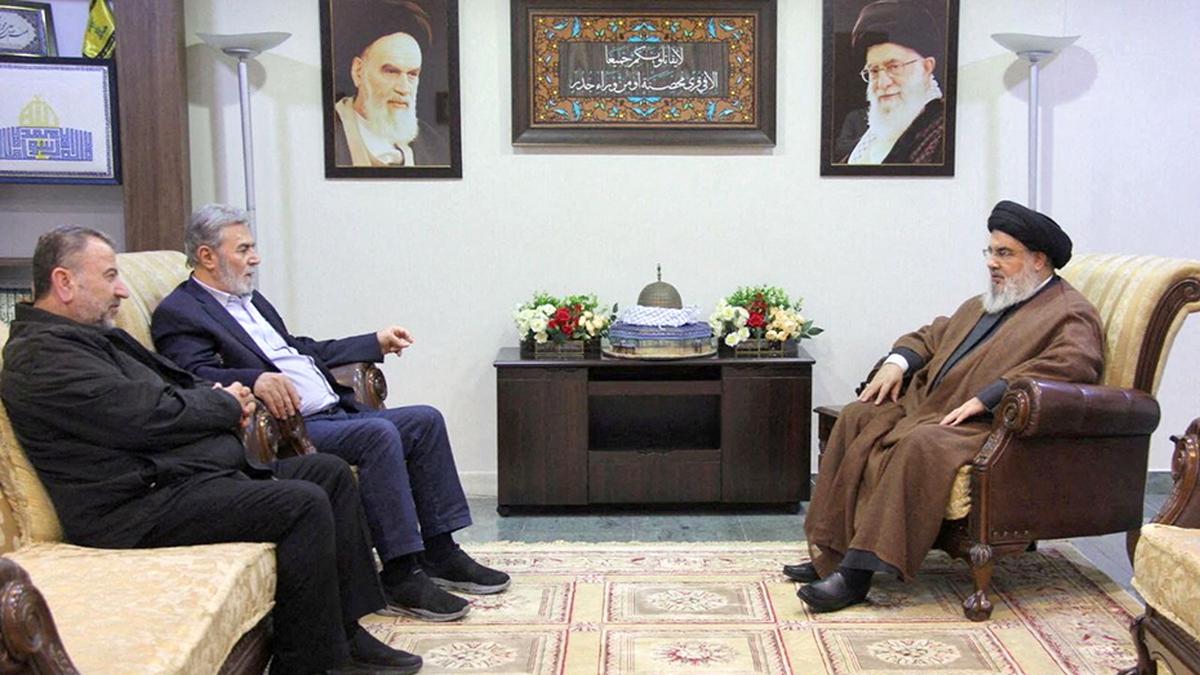
What is Hezbollah and what is its involvement in the Israel-Hamas war? | Explained
The Hindu
We take a look at Hezbollah and what role it may take on during the Israel-Palestine conflict,
The story so far: More than 19,000 people have been displaced in Lebanon amid growing tensions between Israel and the Hezbollah group in West Asia, the United Nations announced on Monday. The ongoing Israel-Hamas war is now on day 23, with the death toll crossing 1,400 in Israel and 7,500 in Gaza.
During a meeting with French President Emmanuel Macron, Israel President Isaac Herzog said on Tuesday that the country is not looking to wage war with Hezbollah militants on its northern border, but is focused instead on battling Hamas in the Gaza Strip, news agency Reuters reported.
“I want to make clear, we are not looking for a confrontation on our northern border or with anyone else ... But if Hezbollah drags us into war, it should be clear that Lebanon will pay the price,” the report quoted President Herzog as saying.
Hezbollah, which stands for “party of God”, is a Shia Islamist political party in Lebanon as well as a militant group designated a terrorist organisation by the U.S., the U.K., Israel, Germany, Australia, and other countries.
In 1982, the Israeli Defence Forces (IDF) invaded Lebanon, where the Palestinian Liberation Organisation (PLO) was active. Hezbollah was established soon after the invasion as a resistance effort against the Israeli forces. In addition to Lebanon’s Shia population, Hezbollah’s resistance to Israel gained support of Palestinian groups as well as State sponsorship from Iran, which underwent an Islamic revolution in 1979.
Even though it was established in the 1980s, the roots of Hezbollah go back to Lebanon’s confessional system established after the country got independence from the French colonial rule in 1943. The National Pact, signed by the new leaders of the country, agreed to a power division among the major religious groups – a Sunni Muslim to serve as Prime Minister, a Maronite Christian as President, and a Shia Muslim as the Speaker of the Parliament.
The influx of thousands of displaced Palestinians into Lebanon caused the country’s demography to shift in favour of Muslims of the Sunni sect. In 1971, PLO relocated its headquarters from Jordan to Lebanon. The religious and political sects in the country continued to fight for greater power shares, resulting in a civil war that began in 1975 and ended in 1989. Syria also sent troops to Lebanon in 1976, intensifying an already volatile geopolitical situation.The involvement of the U.S. and the United Nations Interim Force in Lebanon further complicated matters.













